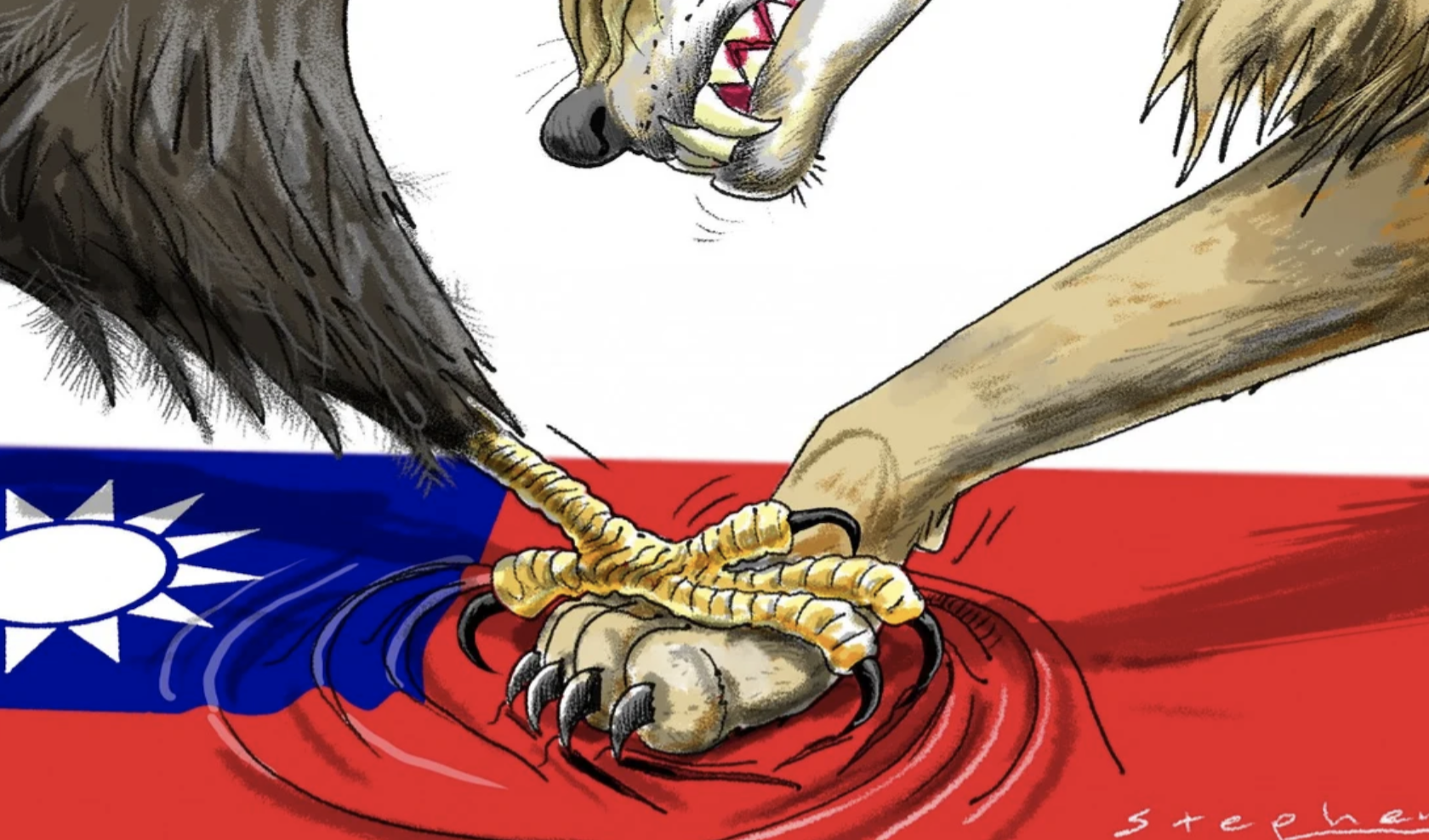RIO DE JANEIRO, BRAZIL – (Opinion) The United States increasingly relies on proxy wars to weaken its direct opponents – currently Russia and China – economically and militarily without suffering significant losses themselves.
While Moscow is already fully targeted, Washington is reportedly preparing to target Beijing. Which nations do the Americans want to “burn up” there?
As recently as May 2020, when Donald Trump was leading the United States from the White House, the U.S. special envoy for Syria, James Jeffrey, declared that Washington wanted to turn the war-torn country into a “quagmire” for Russia.
Read also: Check out our coverage on curated alternative narratives
A strategy aimed at achieving as much dammage as possible for Moscow with as little U.S. input as possible.

Only a small U.S. troop presence in the country was intended to minimize potential losses, while at the same time, various militias were (and are) supported financially and with weapons. The goal: to fight to the last mercenary, fighter, and jihadist against President Assad and his Russian backers.
In Ukraine, the situation is not much different. Instead of directly sending U.S. troops (and NATO soldiers) into the field against Russia, they are content to supply billions of dollars in weapons and ammunition.
One Republican politician summed up his support for this colossal financial assistance to Ukraine in the fight against Russia. He sees it as an investment in destroying the enemy (i.e., Russian) military without losing a single American soldier.
Here's a GOP Congressman explaining the rationale behind the Ukraine proxy war that every Democratic member of the House, including the Squad, just approved another $40 billion for: https://t.co/P5gBOpywon
— Aaron Maté (@aaronjmate) May 12, 2022
In other words, the Americans are happy to fight the Russians down to the last Ukrainian because such proxy wars cost “only” money and not soldiers’ lives (at least not their own).
But Russia is not the geopolitical “main enemy” of the United States. The People’s Republic of China is. That is why Washington is also trying to harness its regional allies (Japan, South Korea, Australia, New Zealand, and maybe even India) for its interests.
Through Hong Kong and the Uighurs, the CIA and the U.S. State Department (via NED) can at least tease Beijing somewhat. But sooner or later, the U.S. establishment will try to establish Taiwan as “Chinese Ukraine” – and then fight China “to the last Taiwanese” (and, if necessary, to the last Japanese and South Koreans).
Note that the U.S. State Department has since deleted from its website the passage stating that Taiwan is considered part of China and that it does not support the island’s independence.
https://twitter.com/ShankHu15/status/1523136526737022977
The example of the Solomon Islands also shows the extent to which Washington opposes Chinese ambitions in the Asia-Pacific region. The small island nation in the Pacific has signed a security pact with Beijing, which put Washington on edge.
After all, this could affect the security of Americans and their allies. “If steps were taken to establish a de facto permanent military presence, power exercise capabilities, or military installation, the United States would have significant concerns and would respond accordingly,” the White House said.
But Washington already supports the pro-American opposition and militant separatists in Malaita province, who have threatened pogroms against ethnic Chinese. And if necessary, troops will be sent to the Pacific islands.
All in all, things do not look very peaceful for the next few years. The greater the domestic problems in the United States become, the more likely foreign policy adventures and aggressive measures by Washington and its allies will become.
And now that the Europeans have been brought in on the Ukraine issue, the focus can turn to the “Indo-Pacific region” – i.e., China.
Allies there may then also be sent to their deaths for U.S. interests. The main thing is that Washington avoids sending home flag-draped coffins.

